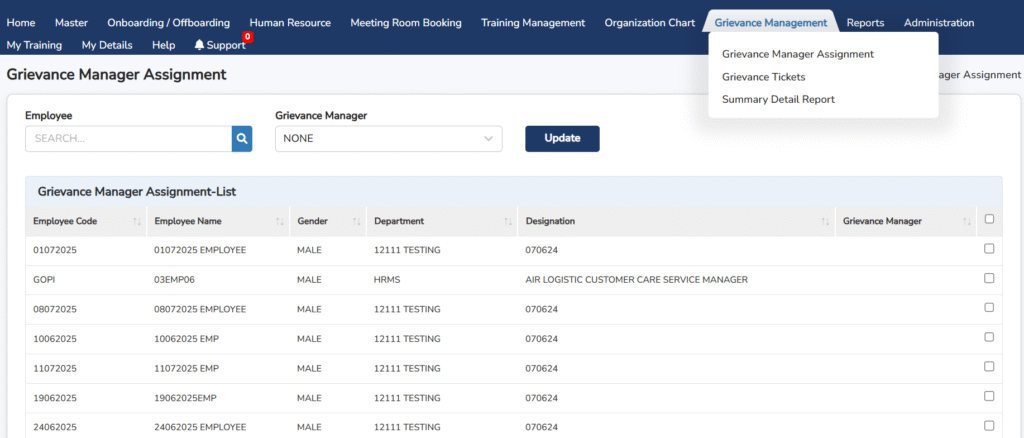On July 11 2025, Malaysia put its new Anti-Bullying Law into effect through the Penal Code (Amendment) Act 2023 and the Criminal Procedure Code (Amendment) Act 2023.
This law represents a big move to protect employees from harassment and bad behavior — and shows the government wants to hold both people and companies responsible for toxic workplace actions.
If you own a business lead HR, or work as an employee, this isn’t just another rule change — it’s now criminal law. If you ignore or handle bullying reports, your company could face serious legal trouble.
The Legal Perspective: Sections 507B to 507G
The new law introduces Sections 507B to 507G into Malaysia’s Penal Code. These sections work together to outline and make illegal various forms of bullying – including physical and mental harassment – in all settings such as the workplace.
|
Section |
Offence Description |
Examples |
|
507B |
Threats or repeated abuse |
Verbal threats, intimidation |
|
507C |
Insults or communications to cause distress |
Humiliating messages or public shaming |
|
507D |
Emotional or psychological harm |
Exclusion, manipulation, or repeated criticism |
|
507E |
Sharing private info without consent (doxing) |
Posting personal data or screenshots online |
|
507F |
Stalking (physical or online) |
Monitoring or following an employee |
|
507G |
Bullying leading to self-harm or suicide attempts |
Causing severe mental distress or trauma |
Timeline:
- Passed: December 2024
- Gazetted: March 2025
- Enforced: July 11 2025
The Legal Affairs Division (BHEUU) and the Minister in the Prime Minister’s Department (Law and Institutional Reform), YB Dato’ Sri Azalina Othman Said oversee the law.
Why This Law Has an Impact on Employers
In the past, companies often dealt with bullying incidents as HR or disciplinary issues, without legal repercussions. The situation has now transformed:
- Emotional or psychological harassment is against the law
- Employers who don’t take action might be seen as careless.
- HR teams need to make sure their internal investigation methods match up with police procedures.
Malaysia’s new Anti-Bullying Law (starting July 2025) makes workplace harassment illegal under Sections 507B–507G, with punishments up to 3 years in jail or fines for those who break the law.
Just like you follow LHDN’s e-invoicing rules, HR teams now have to follow the Penal Code’s new anti-bullying rules.
Main Government Advice for Employers
Minister Azalina Othman has asked organizations to:
- Put anti-bullying rules in employee handbooks and contracts.
- Set up easy ways to report problems inside the company.
- Get the government, businesses, and community groups to work together to teach people about bullying and stop it.
The HR Ministry and BHEUU are teaming up with industry groups to give training and info sessions. They’re focusing on small and medium-sized businesses that don’t have formal ways to handle complaints.
Workplace Bullying in Malaysia — The Numbers
A 2024 study by the Malaysian Institute of Human Resource Management (MIHRM) shows:
- 31% of employees said they saw or experienced bullying.
- 60% kept quiet because they feared payback or thought no one would believe them.
- 45% of cases involved spoken abuse; 28% took place online or in chat groups.
The law now sees these as criminal acts even when they happen in digital work spaces like WhatsApp, Slack, or Microsoft Teams.
Punishments Under Malaysia’s Anti-Bullying Law (2025)
|
Offence Type |
Section |
Maximum Penalty |
|
Verbal or emotional bullying |
507B / 507C |
Up to 3 years’ imprisonment and/or fine |
|
Sharing private info (doxing) |
507E |
Up to 3 years’ imprisonment and/or fine |
|
Harassment or stalking (online/offline) |
507F |
Up to 1 year’s imprisonment and/or fine |
|
Bullying causing self-harm |
507G |
Up to 3 years’ imprisonment and/or fine |
Repeat or deliberate offences lead to tougher sentences when the victim suffers proven psychological damage.
Digital Bullying Falls Under This Law Too
The Anti-Bullying Law covers all work settings, including remote and hybrid arrangements.
This law covers bullying through:
- Work chat platforms (Slack, Teams, WhatsApp, Telegram)
- Company emails or dashboards
- Social media posts linked to work
if they result in emotional distress or damage to reputation.
Companies need to check their digital communication guidelines similar to how they handle data privacy or e-Invoicing rules.
Employer Compliance Checklist (2025)
HR professionals and business owners should take these steps now to meet the new law’s requirements:
1. Update Employee Contracts & Handbooks
Add sections about anti-bullying rules and punishments.
2. Conduct Awareness Training
Teach employers and employees how to spot and report bullying.
3. Set Up Reporting Channels
Use outside or unbiased ways to handle complaints .
4. Document and Look Into All Cases
Keep written notes and show what actions you took after.
5. Check Digital Platforms
Stop misuse in work chat apps while keeping privacy in mind.
How Info-Tech HRMS Helps You Follow the Rules
To manage employees well-being and stick to laws, you need the right tools. Info-Tech’s HRMS helps companies build safer clear workplaces with a built-in “Feedback” module:

- A “Grievance Management” feature to report issues.
- Feedback modules that give employees a chance to speak up about problems.
- Digital records & audit trails to help HR look into issues.
- Analytics dashboards to see patterns in how people act at work.
When companies use digital HR tools, they can spot warning signs, fix problems quicker, and stay on the right side of the law.
Book a Free Demo to see how our HRMS helps you follow anti-bullying rules.
Takeaway
The Anti-Bullying Law Malaysia 2025 means more than just a change on paper — it shows the government cares about mental health and respect at work.
Companies that take action now — by updating policies training employees, and implementing clear HR systems — will safeguard their staff and their company’s image.
Info-Tech’s HRMS combines compliance with care. Transform your workplace into a safer more respectful environment — for all.
Frequently Asked Questions:
What’s the start date for Malaysia’s Anti-Bullying Law?
The law began on July 11, 2025, under the Penal Code (Amendment) Act 2023.
What are the penalties for workplace bullying in Malaysia?
Based on the offense punishments range from fines to 3 years in prison under Sections 507B–507G.
Does the law apply to online or remote bullying?
Yes. The law covers cyber or workplace harassment through email, chat groups, or digital platforms.
Are employers responsible if bullying happens at work?
Yes. Employers who neglect or handle bullying complaints might face legal and reputation risks.
How can companies comply with this law?
Companies can comply by revising contracts educating employees and using HRMS tools like Info-Tech’s Grievance Management feature to enable safe reporting.
